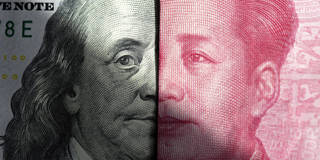Jeffrey Frankel
Says More…
This week, Project Syndicate catches up with Jeffrey Frankel, Professor of Capital Formation and Growth at Harvard University’s Kennedy School of Government.
Project Syndicate: The recent US decision to label China a “currency manipulator” has been roundly criticized. The People’s Bank of China (PBOC), you wrote last month, merely “gave in to market pressure – the immediate source of which was none other than President Donald Trump’s announcement” of new tariffs on Chinese goods. But with Trump announcing yet another escalation in tariffs and pressuring the Federal Reserve to cut interest rates and weaken the dollar, could the label become a self-fulfilling prophecy, with both sides engaging in competitive depreciation?
Jeffrey Frankel: The US finding of manipulation was absurd. China has been intervening to resist renminbi depreciation since 2014. It is Trump who seems eager to engage in competitive devaluation, despite a February 2013 G7 agreement not to do so: he has been strongly urging the Fed to cut interest rates, with the explicit motive of pushing down the value of the dollar.
If the dollar does depreciate in the future, other monetary authorities, such as the European Central Bank, might respond by renewing their own monetary expansion, with an eye toward exchange-rate competitiveness. That scenario would have some characteristics of the type of “currency war” that is so often discussed, but direct intervention in the foreign-exchange markets still seems to me unlikely.
Frankel recommends
We ask all our Say More contributors to tell our readers about a few books that have impressed them recently. Here are Frankel's picks:
-
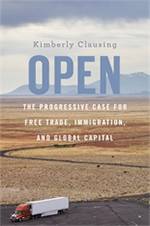
Open: The Progressive Case for Free Trade, Immigration & Global Capital
by Kimberly Clausing
Why should the anti-globalizers have a monopoly on the idea that the goal of maximizing GDP must be supplemented by human values, cultural considerations, and a concern for inequality? It is neither a paradox nor a coincidence that “liberal” can mean both “progressive” and “laissez-faire.” Would it be progressive for a consumer to discriminate against a product because it was produced by somebody of a different race, creed, or national citizenship? Reed College’s Clausing, a leading expert on globalization and international taxation, makes the case for an open economy, and outlines a progressive agenda to manage globalization more effectively.
-
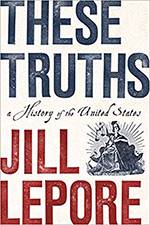
These Truths: A History of the United States
by Jill Lepore
I am intrigued by some of the incidental tidbits that Lepore, a Harvard historian and New Yorker writer, includes in her new book. Who knew that the (dreadful) Dred Scott decision of 1857 was only the second time that the US Supreme Court exercised judicial review over Congress?
-
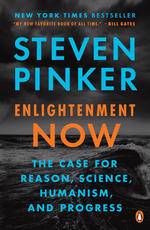
Enlightenment Now: The Case for Reason, Science, Humanism, and Progress
by Steven Pinker
The assertion is hard to believe, and Pinker – a psychology professor at Harvard – knows it, but “life, health, prosperity, safety, peace, knowledge, and happiness are on the rise, not just in the West, but worldwide.” For example, the English homicide rate is down by a factor of about 50 since the Middle Ages. Worldwide – including among poor countries – average life expectancy is now 71 years, up from 30 back then. About a billion fewer people are living in extreme poverty than in 1990.
The underlying reason is the legacy of the Enlightenment – that is, the philosophy of reason, science, and progress. Pinker is an all-too-lonely voice calling on us to appreciate these values, rather than take them for granted or even attack them and the institutions of liberal democracy they underpin.
-
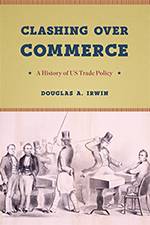
Clashing Over Commerce: A History of US Trade Policy
by Douglas Irwin
A talked-about economics book that amply rewards reading all 860 pages is rare. A very clear explanation of the overarching political economy of trade that frames America’s tariff history is even rarer. Irwin, an economics professor at Dartmouth College, delivers both.
Irwin persuasively divides this history into three segments:
- 1763-1865 – Revenue: Alexander Hamilton established tariffs that were no higher than necessary to fund the new government.
- 1865-1932 – Restriction: When the agricultural South lost the Civil War, it also lost the political power to counter-balance the protectionism of Republican manufacturing interests concentrated in the Northeast.
- 1932-2017 – Reciprocity: Learning from the catastrophes of the 1930s, the US led the world to an open rules-based multilateral trading system, from which all countries benefited.
From the PS Archive
From 2017
Early in Trump’s presidency, Frankel warned that economic conditions were far less stable than investors seemed to think. Read the commentary.
From 2019
This summer, Frankel argued that, rather than doubling down on their oft-missed 2% target, the Fed and other central banks should quietly stop pursuing it aggressively. Read the commentary.
Around the web
In an interview with Chosun Ilbo, Frankel answers nine questions about the US-China trade war and the emerging dispute between Japan and South Korea. Read the transcript.
Frankel discusses the renminbi/US dollar exchange rate and the Trump administration’s decision to label China a currency manipulator. Listen to the podcast.
In a conversation with the Harvard Gazette, Frankel analyzes the recent market selloffs and discusses the possibility of a US or global recession. Read the interview.
